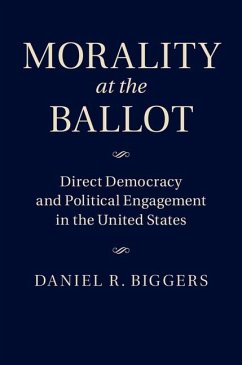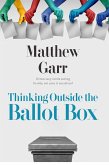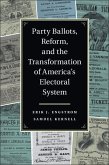Across the United States, there is wide variation in opportunities for citizens to craft legislation through the process of direct democracy. Previous studies suggest that an active role in policy making can spark political interest and engagement, encouraging individuals, who would otherwise abstain from voting, to turn out. Daniel R. Biggers challenges this contention, testing a new theoretical framework that details the exact circumstances under which any proposition might increase participation. Morality at the Ballot reveals that the ability of direct democracy to increase turnout is significantly more limited than currently thought, and that the propositions that do affect participation are restricted to a small subset of ballot issues that include morality policy. Biggers uses these morality propositions to demonstrate the conditions necessary for direct democracy to influence turnout, affect who votes, and shape electoral and policy outcomes. The investigation provides significant insights into the consequences of deciding policy via the ballot and expanding the role for citizens in the political process.
Dieser Download kann aus rechtlichen Gründen nur mit Rechnungsadresse in A, B, BG, CY, CZ, D, DK, EW, E, FIN, F, GR, HR, H, IRL, I, LT, L, LR, M, NL, PL, P, R, S, SLO, SK ausgeliefert werden.









